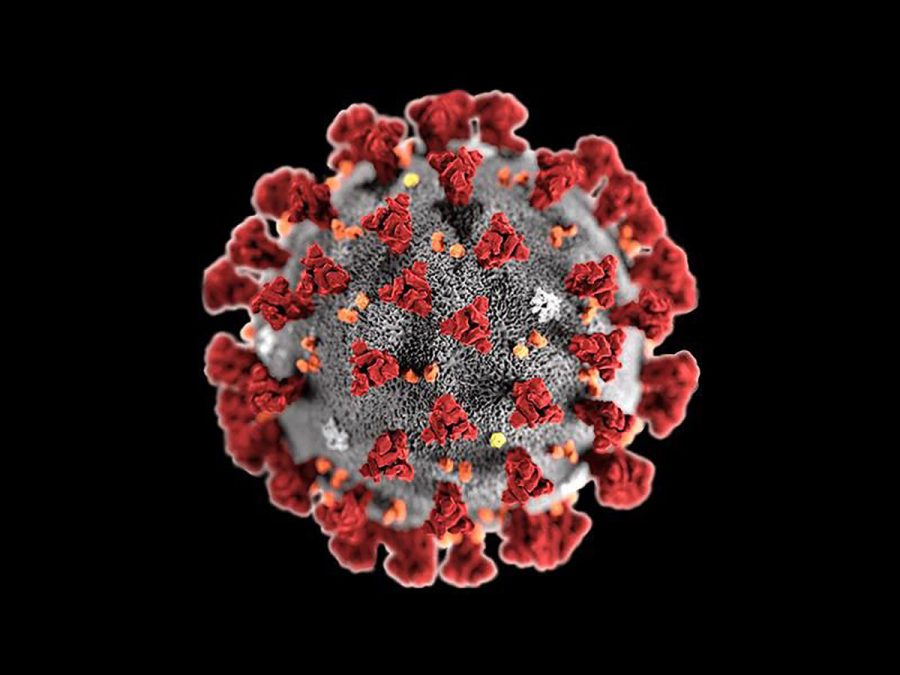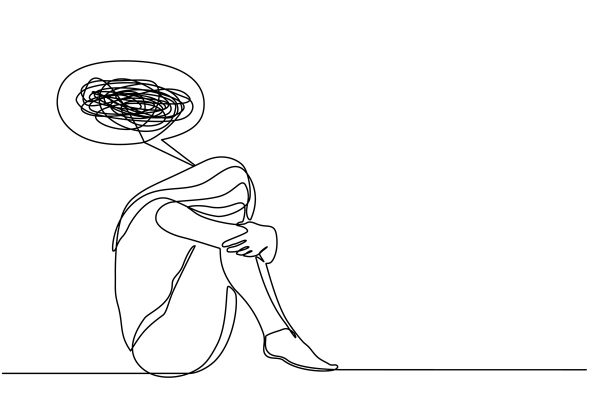Why the UWEC COVID-19 plan is dangerous
How the novel coronavirus is dangerous to students with chronic illnesses
Photo by Submitted
Coronavirus is named for the crown-like structure of the virus. The strain of coronavirus that is causing the worldwide pandemic is known as COVID-19.
I am sure you’re sick of hearing about COVID-19. I am too. But, as an immunocompromised person, the virus poses a major risk to me as compared to my peers.
We have all seen posts on Facebook and Twitter talking about how we don’t need to worry about the virus because the flu has killed more people, or because car accidents kill more people, or because something else has killed more people.
Just because there are fewer stabbing deaths in the world than gun deaths doesn’t mean I’m going to ignore someone who is threatening me with a knife. That would be a stupid thing to do.
The novel coronavirus that originated in Wuhan, China at the end of 2019 has a 3.4 percent death rate, and influenza has a 0.1% death rate. That is a huge distinction.
I’m not saying we shouldn’t be worried about the flu, either. Please, I implore you, get your flu shot, wash your hands and stay home if you are sick, even if there isn’t a pandemic occurring at that point in time.
Covid-19 is scary because scientists are constantly learning about how the virus works. No vaccine is available yet, and there are still a lot of questions about transmission.
What we do know, however, is that the virus affects the elderly and those who already have health issues much more than the typical healthy college student.
On March 10, Chancellor James Schmidt spoke to the University Senate about the university’s plans going forward with the COVID-19 outbreak. In the meeting, he joked about how the virus was more likely to affect faculty than students and continuously dismissed the threat to students.
By saying that COVID-19 isn’t that big of a deal because it only affects the elderly and the sick — a sentiment I have seen far and wide from my family, friends, classmates and strangers online — you are saying that my life doesn’t matter.
The elderly and immunocompromised are not expendable. Our lives are not worthless.
On March 11, Schmidt sent an email to faculty, staff, and students announcing the university’s coronavirus plan. The email said the university is not suspending in-person instruction, but rather suspending the attendance policy.
In suspending the attendance policy, the chancellor essentially did nothing. I will still be required to show up to my classes or risk failing.
I am not asking to suspend face-to-face instruction for the rest of the semester. In fact, I don’t want that. I want to be able to finish out this semester. However, limiting social interaction is the best way to avoid getting sick.
If my peers get sick, it is likely that they will still come to class. If they had COVID-19, they likely wouldn’t have the thousands of dollars to get tested for it.
Especially after coming back from spring break, there is no way to ensure the health and safety of students on campus by merely discouraging them from traveling and telling them they don’t have to come to class.
My health and safety are on the line, but so is my education.
I shouldn’t have to decide between coming to class and potentially getting sick or staying home and safe but potentially having my grades slip. That’s not a decision I — or anyone else on this campus — should have to make.
The university has shown that it isn’t taking this pandemic seriously and that it isn’t looking out for its students.
Kelley can be reached at [email protected].

Bridget Kelley is a fourth-year journalism student. Bridget enjoys hanging out with babies, coffee and oxford commas. If anyone has any gluten-free food suggestions, Bridget's inbox is open.











Janet lederer • Mar 16, 2020 at 11:19 pm
Very well said. Thank you. I also have a auto immune desease. Lupus. It just erks me that people have no clue how we have to live. Thank you for writing that article
Elizabeth Zubar • Mar 12, 2020 at 3:18 pm
I completely agree with you. Most of the University of Wisconsin schools, The entire University of Minnesota, the entire Minnesota State university system, and many others have gone to an on line learning programs. I have been told the reason is because they go on break this week. So UWEC students are pawns due to the almighty schedule? I am starting to wonder if the desire to not lose dorm and dining money may be in the thought process. I do not care about the money. I want all students and their families safe. What will it take to go to on-line learning Chancellor Schmidt?
Concerned Citizen • Mar 12, 2020 at 2:52 pm
Unfortunately, this is yet another example of Chancellor Schmidt’s dismal leadership. Instead of following the advice of the CDC and WHO and other UW System campuses, he abdicates his responsibility and just makes a non-decision. This solution solves NOTHING.
DYLAN MICHAEL HARKA • Mar 12, 2020 at 1:32 am
Not to sound crass, but in the school’s defense if you as a student really felt the need to stay home; you should message your instructor about it and get the required homework ,so your can keep up your grades that you mention numerous times in this article. Some students not all, should study so they don’t feel they have to jeopardize the integrity of their GPA for their own well-being. I get that you care about the student population and what Schmidt joked is wrong on many levels still, we have multiple literatures that you never mention to read up on as well as trying to see the other side of the argument which include the fact that certain teachers on either campus would not be beneficial to GPA’s online. Yes, my reasoning is biased in some regards , but numerous students have agreed with me.
The main reason I am commenting is to consider and maybe point out that literature is available to stop the mass hysteria, classes online aren’t as beneficial but maintain your point of view as well
I appreciate you reading my comment as well taking time reading this so you can help point students in the right direction for resources.